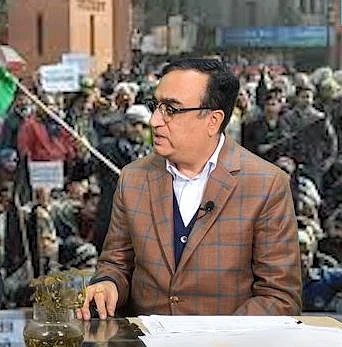NPR is the first stage of NRC: Ajay Maken
‘There are new additions to questions that were asked in NPR 2010. In 2020, you have to mention your parents’ birthplace and birth date besides other details. Do you get the drift now?’ Maken asked

While citizens of India have come out in large numbers across the length and breadth of the nation against the divisive and exclusionary Citizenship Amendment Act, Prime Minister Narendra Modi and Union Home Minister Amit Shah were possibly shaken out of the hubris of 300-plus seats in the Lok Sabha that has been clouding a lot of the decisions taken by this government.
Modi announced at his Ramlila Maidan show that there has been no discussion about NRC in his Cabinet, something directly contradicted by his own TV interview a few weeks back, the repeated assertions by Shah and an address by President of India Ram Nath Kovind too.
And then, within two days of his false claims, his government announced the allocation of funds for the first stage of the National Population Register (NPR) programme, which again Amit Shah claimed is unrelated to NRC.
However, the government’s lies are blown apart by the audit report of the Union Home Ministry itself that claims that NPR is the first step in the NRC process.
In a recent interaction, Ajay Maken, senior Congressman and former Minister of State for Home Affairs in 2010 when the first edition of NPR was held, clarified the difference between NPR 2010 and NPR 2020.
“These are new additions to the questions that were asked in NPR, 2010. In 2020, according to media reports and social media discussions, you will have to mention your parents’ birthplace and birthdate; your Aadhaar number; telephone number, last place of residence, Electoral ID number; Driver’s Licence number. Do you get the drift now,” asked the senior leader.
The NPR in 2010 was supposed to be a Local Register of Usual Residents (LRUR) following the United Nations’ definition of an ‘Usual Resident’ as one living in an area for six months or intending to live for six months. Thus, the NPR 2010 was a residents’ register and the NPR 2020 is intended to be a citizens’ register.
Maken also said, “This process will hit the poor, Dalits, minorities most as they are less likely to have proper documents and papers than the others.”
The NPR process will identify the Doubtful (D) Voters list who will be asked to submit proofs of their citizenship under the NRC process. That is the true purpose of NCR.
Follow us on: Facebook, Twitter, Google News, Instagram
Join our official telegram channel (@nationalherald) and stay updated with the latest headlines
